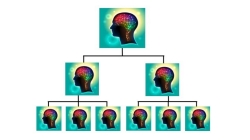The I-O doctoral program at the University of Oklahoma is rigorous and rich with a variety of opportunities for students interested in a range of applied and translational programs of research, covering laboratory and field work as well as quantitative, qualitative, and modeling techniques. We follow a scientist-practitioner model. Our primary objective is to train individuals seeking the Ph.D. degree to conduct research and to practice in the areas of industrial psychology and organizational behavior.
Faculty include: Shane Connelly, Adrienne Carter-Sowell, Eric Day (Program Coordinator) , Yaqing He, JeongJin Kim, and Lori Snyder
Graduate Students Include: Joshua Chappell, Brandon Choi, Rachel Detherage, Sophia Fischer, Kyra Gallion, Cecelia Gordon, Benyt Hagler, Yomna Helmy, Josie Koubek, James Lue, Maddison North, Joshua Rice, Raechel Sanger, Amanda Stephens, Joseph Stewart, and Piper Winsett.


